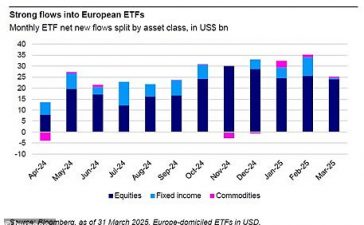As the police arrived at the door of our newsroom to march us out of the office, I wrote on the wall: “Freedom is precious.” Our news site was taken down from the internet and my colleagues and I set up a protest in front of the State Great Khural, the Mongolian parliament. Afterwards, a contact told me the government was looking to “shut me up”. I did not suspect that by “shut up” they meant imprison.
I have been a journalist in Mongolia for nearly 20 years. I started my career as the country was emerging from the democratic transformation that followed decades of state communism and the collapse of the Soviet Union. Corruption was endemic and there was no tradition of real journalism.
When I was a young reporter, it was not customary for journalists to question politicians. Rather, a politician would call on a reporter and expect them to write exactly what they were told. It was news to order.
I did not want to do that. I hoped that through my work, by asking uncomfortable questions, I could heal my country and help to build a new Mongolia, free of corruption and oligarchs.
But it was hard. In newsrooms, whenever I pitched challenging stories, my editors would shoot me down.
Once, as a parliamentary reporter, I saw a prominent politician staggering down the Khural corridors drunk. I told my editor that I wanted to write about alcohol abuse among MPs, which was not uncommon. But he told me: “It’s none of our business.”
That is why, seven years ago, I decided to found my own site, a home for hard-hitting investigative journalism. I called it Zarig, which in Mongolian means “to dare”. We became successful: we have more than one million followers on Facebook alone, which in a country of little more than three million people is no small achievement. We showed that Mongolians have an appetite for objective and independent media.
As the Mongolian People’s party, a successor to the Communist party, consolidated more and more power, we – the media – became the only real opposition capable of holding the government accountable. Citizens would reach out to us after they had been let down by their local authorities, and in the last years at Zarig, I focused on covering their problems.
I wrote about a young woman, a single mum of three, killed in a car crash, whose internal organs were harvested without her family’s consent. And about a married couple of cattle herders who received harsh prison sentences for stealing nine baby goats, leaving their children without carers. In my country, the poor are thrown into prison while criminals sit in parliament.
I uncovered corruption scandals, showing that powerful politicians were embezzling money from the Development Bank of Mongolia and that a national fund to help bright Mongolians study abroad was used by politicians to fund their own children’s education.
But for all of Mongolia’s problems, I did not think I would end up like this: imprisoned on trumped-up charges, awaiting a trial with no set date and no hope for justice.
Though the landscape of independent media in Mongolia was young – perhaps fragile and poorly funded – we enjoyed far greater freedom than many of our neighbours in the region. We grew used to it, and then it began to change.
Over the past eight years of the People’s party government, Mongolia has plummeted in the rankings of media freedom and risen in corruption indexes.
after newsletter promotion
Next month, the party stands for re-election. The government has spent the past few years preparing for this by using laws – introduced into the criminal code in 2020 supposedly to fight disinformation – to choke the few independent journalists left.
At the beginning of 2023, I started being called in for police questioning constantly. I began to feel unsafe and decided to spend two months in London, hoping this would be enough time for things to settle down. On 4 December, a few months after I returned, I was arrested.
Officially, I have been charged with contempt of court, spreading misinformation, disclosing personal information, money laundering, acquisition of state secrets and tax evasion – I was told, Zarig missed 57m tugriks [£13,000] in tax payments over seven years.
I face five years in prison. The government appoints all the senior judges and prosecutors – I do not expect a free trial.
After I was detained, I was kept in a five-by-two metre cell with three other people. Sharp fluorescent lights were on 24/7. It was very cold and impossible to sleep. After two months, I developed kidney problems and a back injury.
When I was marched through the corridors, inmates would whisper words of solidarity. Even guards said they supported me. There were 10,000 people in the prison, and everyone knew about me and my case.
It is thanks to public support that after two months I was transferred to house arrest. I do not wear a tracking device but there are cameras fitted in my home – I have not been told where, but I was told I am being watched. It makes me anxious.
Public and international support are my only hope. The messages I receive from Mongolians on social media keep me going. But international support has been harder to gain. I have reached out to a few organisations, but have not heard back. It is difficult for me, as I do not speak fluent English.
My lawyers tell me my case is hopeless. They want me to reach an agreement with the government. They think that if I agree not to write about the People’s party, my charges will be dropped.
But I cannot do this. I have not entertained it, not even for a moment. If I agree to give up now, it will mean the end of journalism in Mongolia.
As told to Weronika Strzyzynska, before last week’s sentencing











